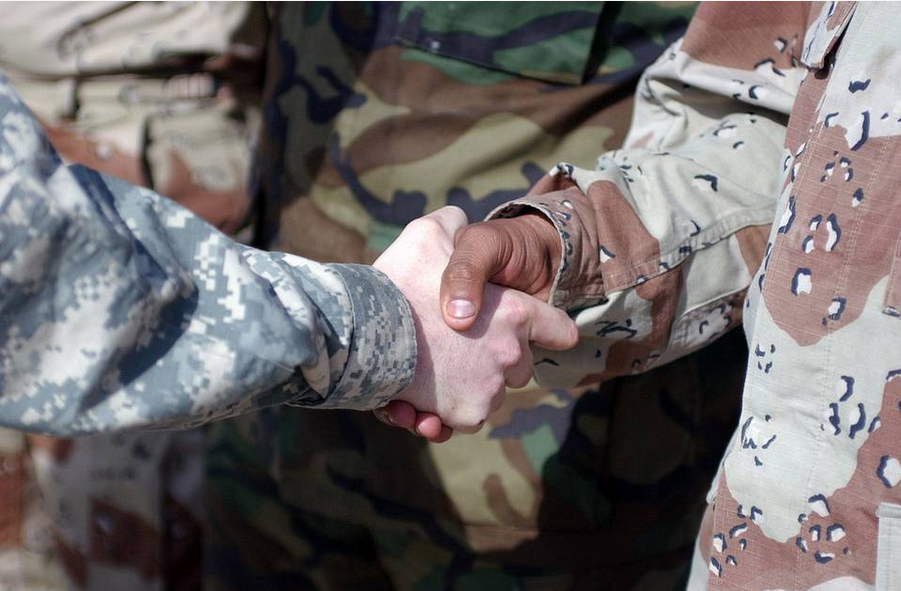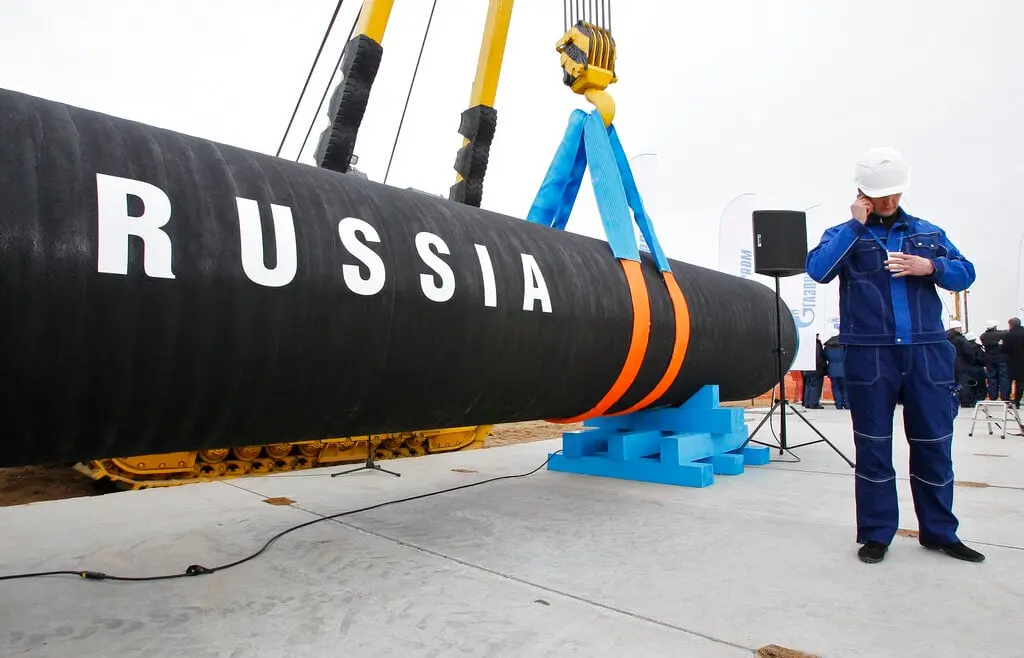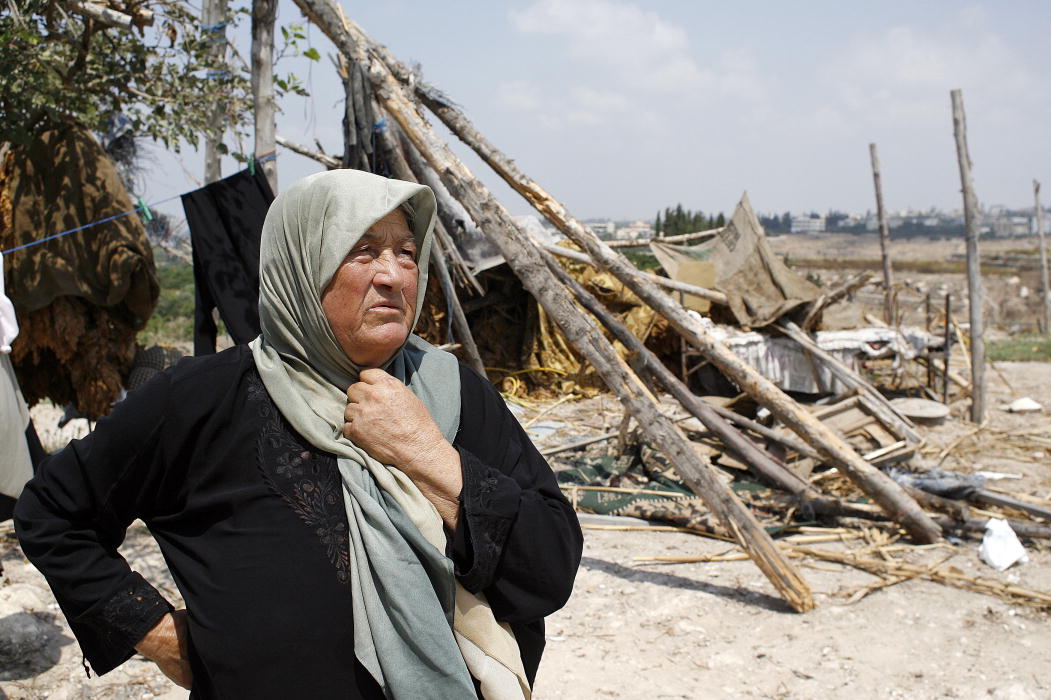Photo: A US and Iraqi soldier shaking hands -. National Archives Catalog
Since the Russian invasion of Ukraine, defence has again been at the top of the Dutch and European agenda. In Dutch politics, there is great consensus on the issue, for example on topics such as aid to Ukraine and raising the defence budget to 2 per cent of GDP. However, it remains important to distinguish the different views that exist on defence. After all, there are certainly some choices to be made on defence. For instance, do we want to cooperate more or do we want to do more ourselves? Ee do we want to guarantee our security primarily with weapons or rather with treaties? And what are the long-term consequences of these choices? In this series, 'Peace & Defence', the FMS tries to answer what a progressive narrative on defence entails and what trade-offs it involves. We do this by engaging with various organisations that deal with defence, war and violence and offer a progressive view on this
For the first part of this series, the FMS sat down with Cor Oudes, the humanitarian disarmament project manager at PAX. As the largest peace organisation in the Netherlands, which even won the Nobel Peace Prize in 2017 in partnership with some other organisations, PAX offers an indispensable perspective on defence and violence. After all, defence is ultimately never about war, but rather about the peace it is meant to defend.
Defence is about people
When asked what PAX's vision of Dutch and European defence policy is, Oudes immediately emphasises that PAX is a peace organisation, but therefore not a pacifist one. This means that for PAX, the armed forces are certainly crucial for our security, but you have to properly regulate how they can and may be deployed. This is very clearly reflected in projects around humanitarian disarmament that Oudes is involved in. In this, PAX does not so much argue for a general disarmament, but for banning weapons that usually affect many civilians, such as chemical and nuclear weapons or cluster munitions.
Therefore, according to Oudes, the effects that weapons and violence have on people should always be at the centre of a just defence policy. Oudes distinguishes here between state security and human security. According to him, defence is currently focusing far too much on state security, where security is understood from the perspective of the state. This does not necessarily lead to human security and may even be at odds with it. For instance, wanting to deter with nuclear weapons is an example of thinking from the point of view of state security, where human security, because of the catastrophic impact of these weapons on civilians, leads to other choices.
No new arms race
In practice, discussions on defence are now largely about the war in Ukraine. PAX is in favour of arms deliveries to Ukraine, but at the same time very critical of the huge intensification of Dutch investments in defence and weapons. According to Oudes, there is a big difference between investing in our own defence budget and supplying weapons to Ukraine. While Ukraine is under active attack and needs weapons to protect itself, this is not the case for us. It is of course important to maintain defence levels, but we have to realise that we need to prevent war precisely. Although Russia is suffering huge losses in war, it is still a nuclear power. The very heavy investment in arms, on all sides, is reinforcing an arms race already under way.
So increasing Dutch and European defence budgets is ultimately not going to solve much. Oudes: "This way, negotiations are conducted via defence budgets and not diplomacy." He stresses that three times as much is now being invested in the armed forces compared to 2014, while diplomacy has been cut. The risk is that, in this way, force becomes an alternative to diplomacy. Oudes of course does not mean by this that the Netherlands should not maintain its own army, but this should always be a last resort are. Diplomatic measures take precedence.
Investing in the international rule of law
However, it is questionable to what extent diplomacy can do anything against an aggressor like Russia that is actively trying to increase its power with military actions. According to Oudes, countries individually cannot do very much, but the international community as a whole can make a fist against Russia and isolate it. This should be done by enforcing international norms and strengthening the international rule of law. Oudes: "These norms are already there, but the tools we had to enforce them have folded." For example, many countries have dropped out of complying with international treaties and enforcing the international rule of law. We need to get these countries back strategically by ensuring that they also have an interest in a strong international rule of law.
A progressive narrative on defence
For a progressive narrative on defence, this means that we should instead invest in the international rule of law and diplomacy because of their importance for our security. This is not to say that the armed forces are unimportant - quite the contrary - but rather that force should always be used only as a last resort. When you cut back on cooperation and diplomacy, it leads more quickly to violence in the world because there are then fewer steps that can be taken before a war breaks out and because there are fewer means to settle a conflict. This should never be the commitment of defence.
However, the current government seems to be banking on this. They are now investing heavily in defence, but are cutting back on diplomacy and development cooperation, even though this is also hugely important for our security, not only to prevent war, but also to be able to act jointly against aggressors like Russia. Defence requires a holistic approach, where the armed forces, diplomacy and international cooperation all have a place. This is exactly what a progressive narrative on defence focuses on, making it a crucial alternative to our view of security.




